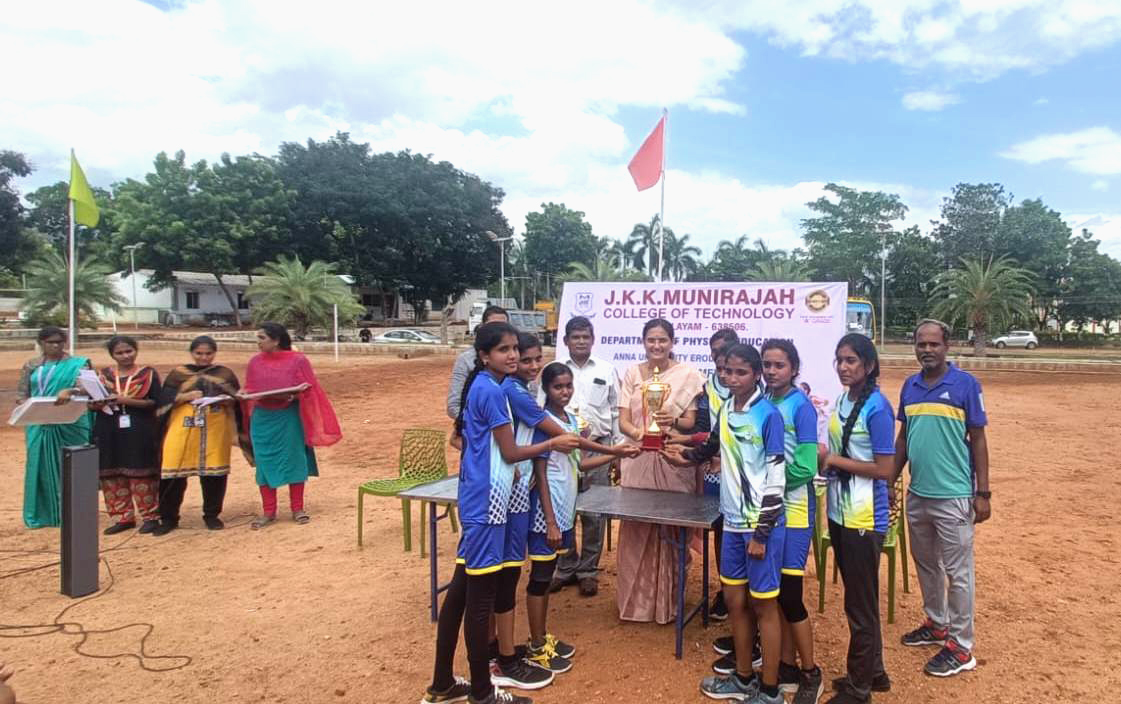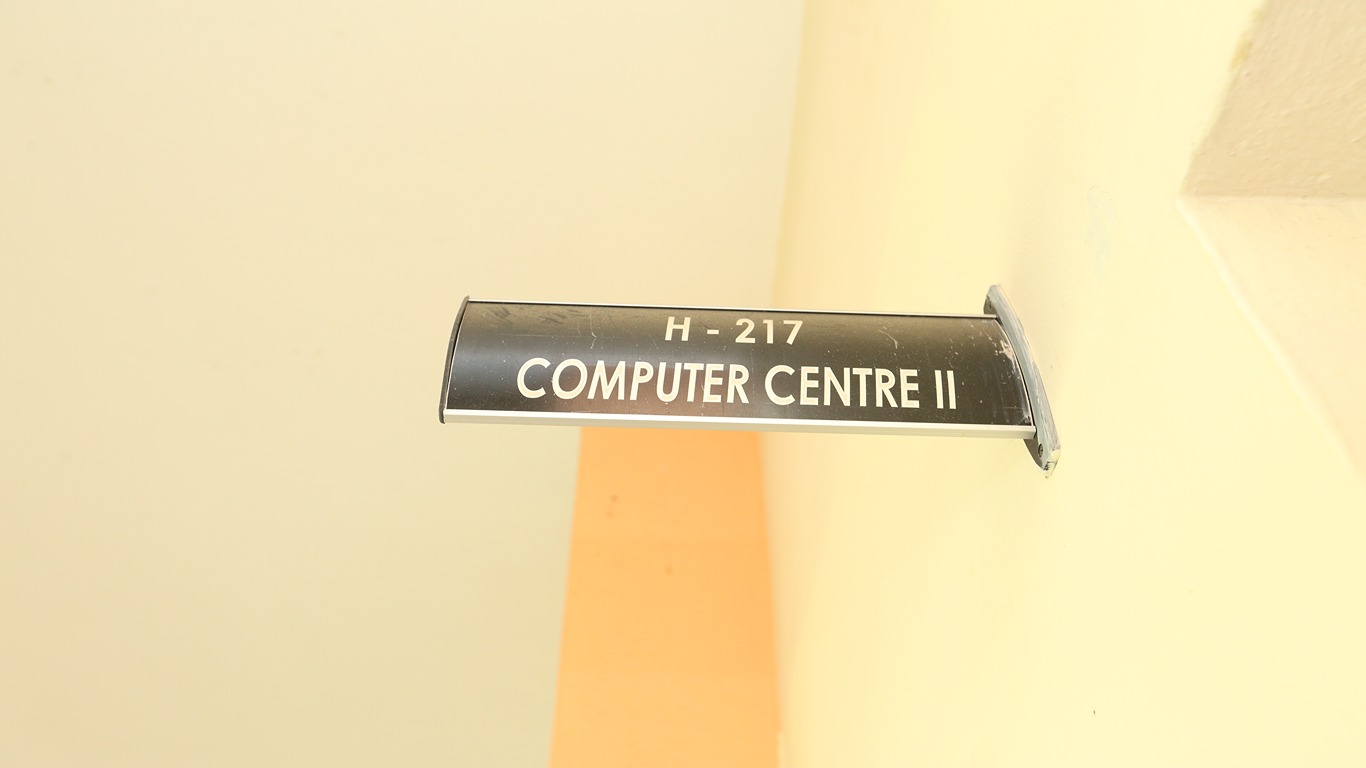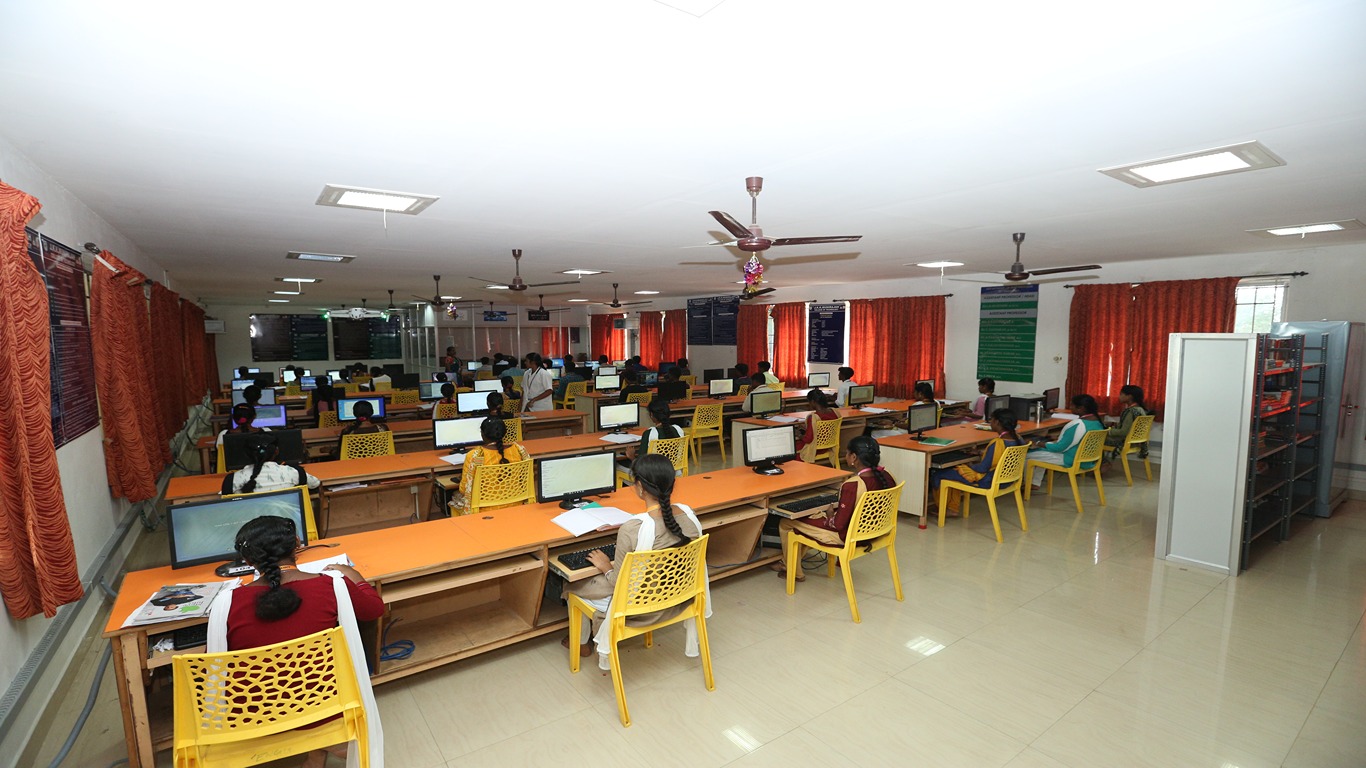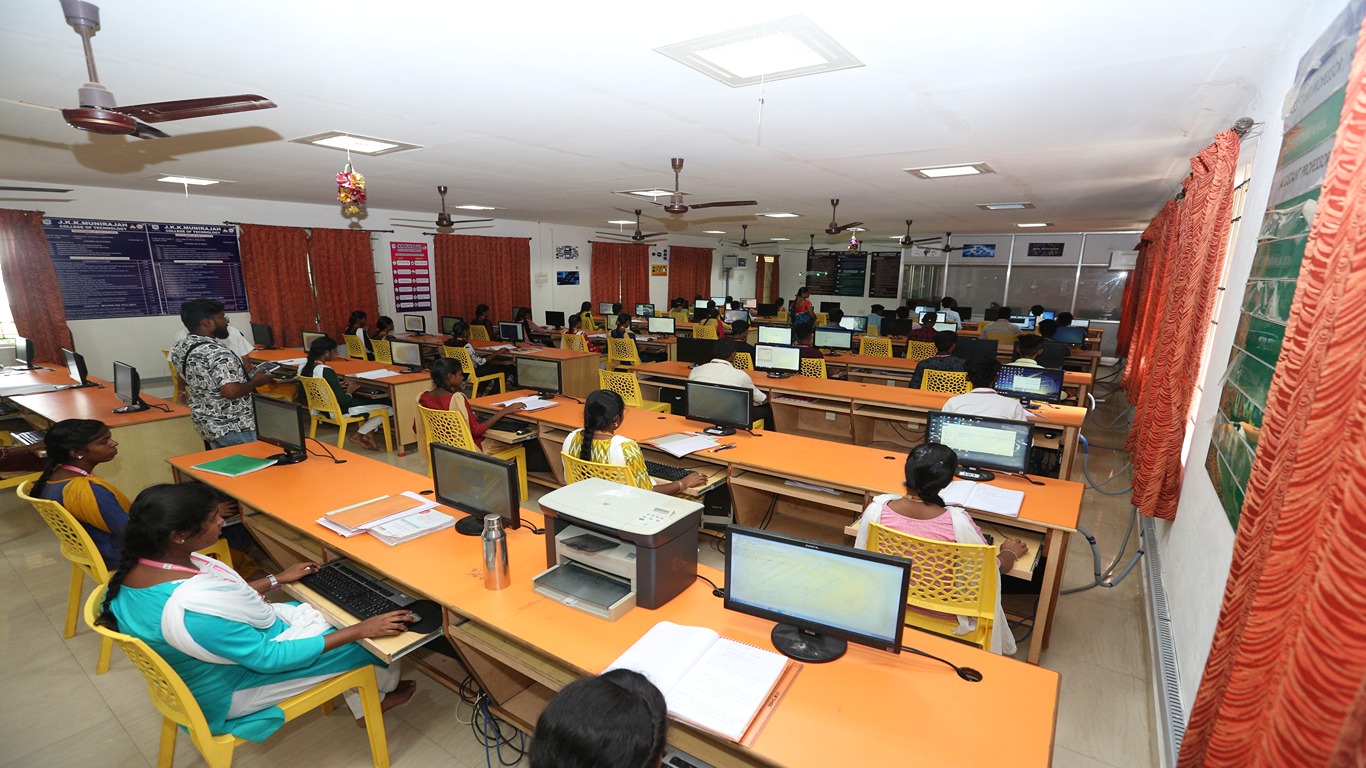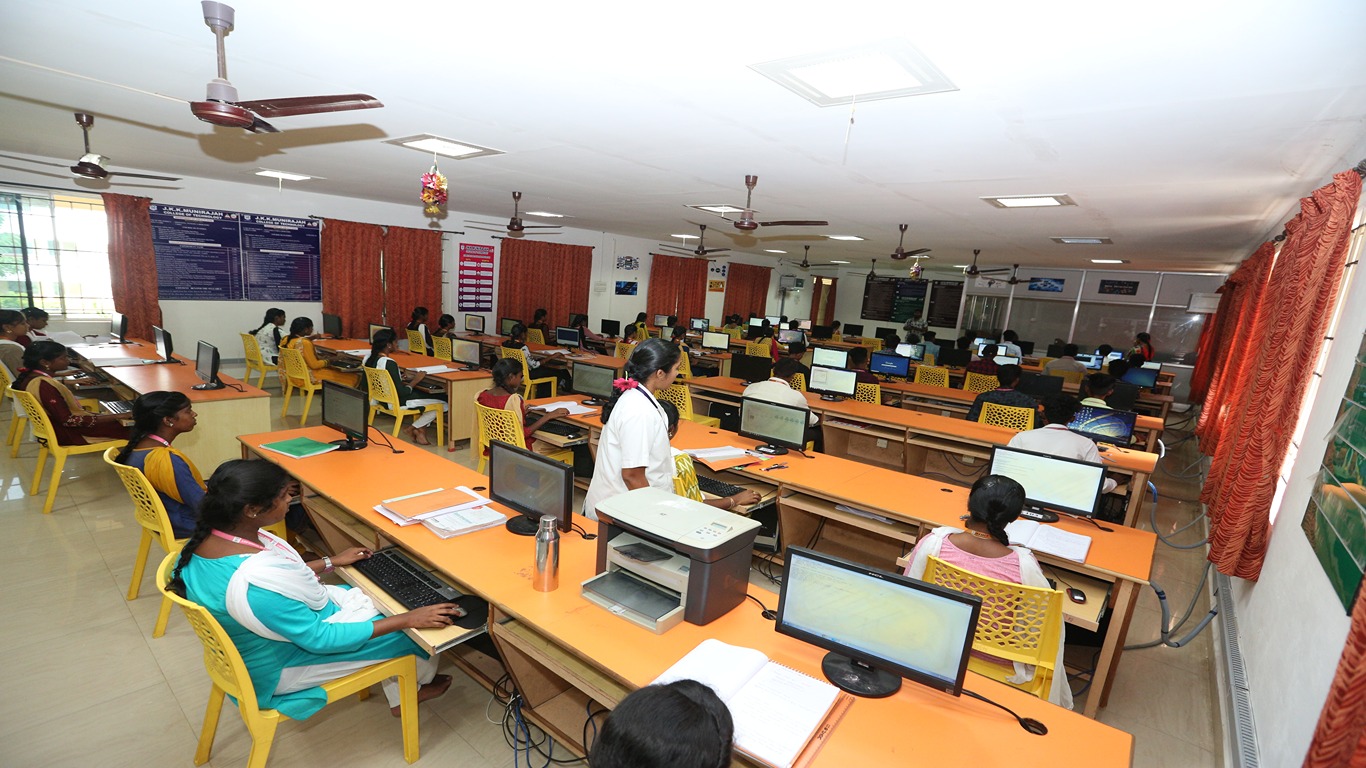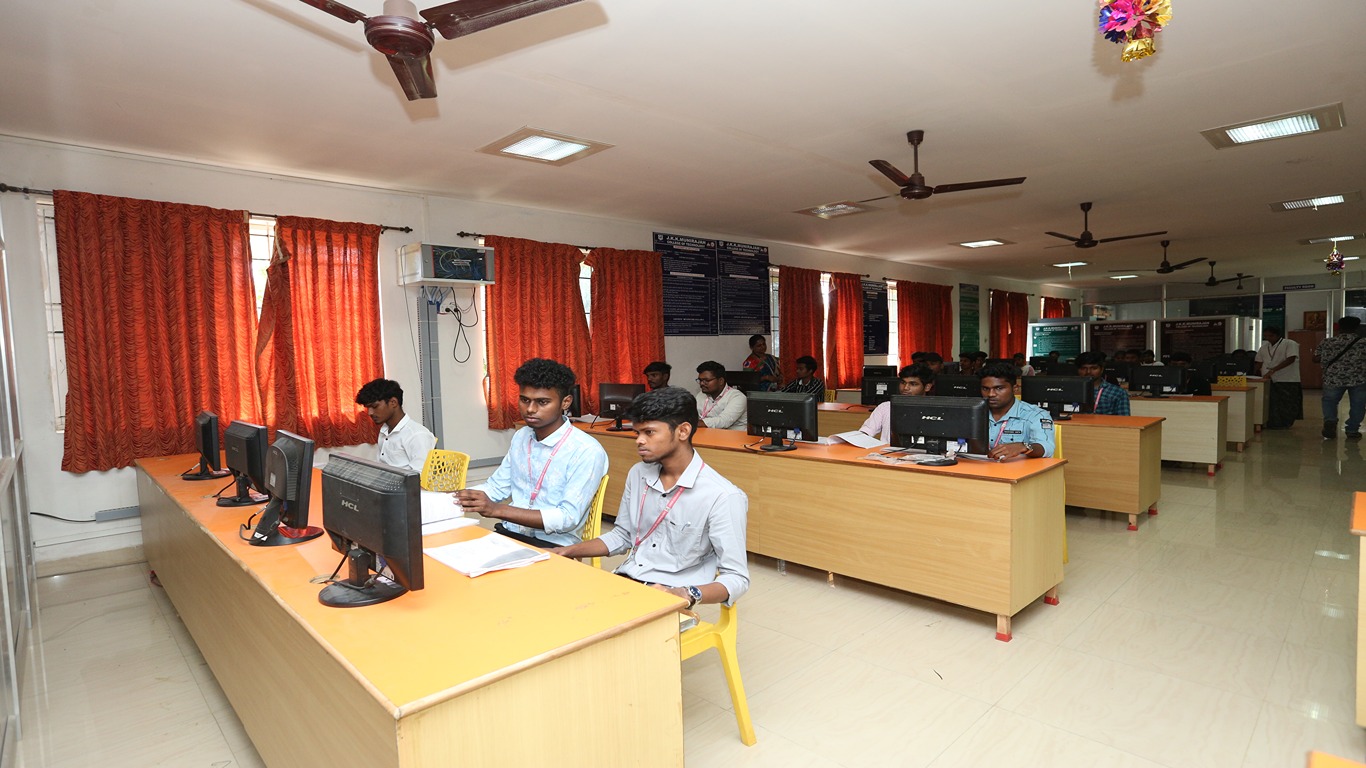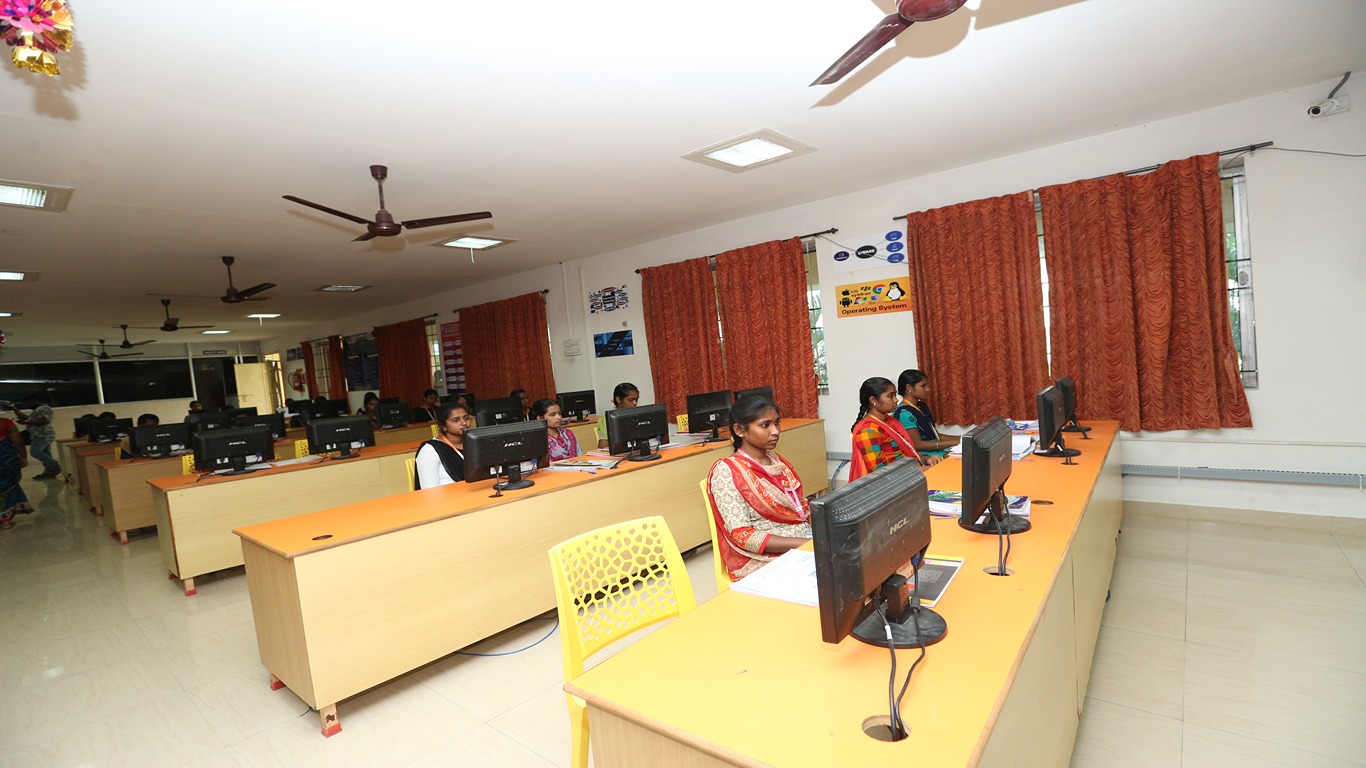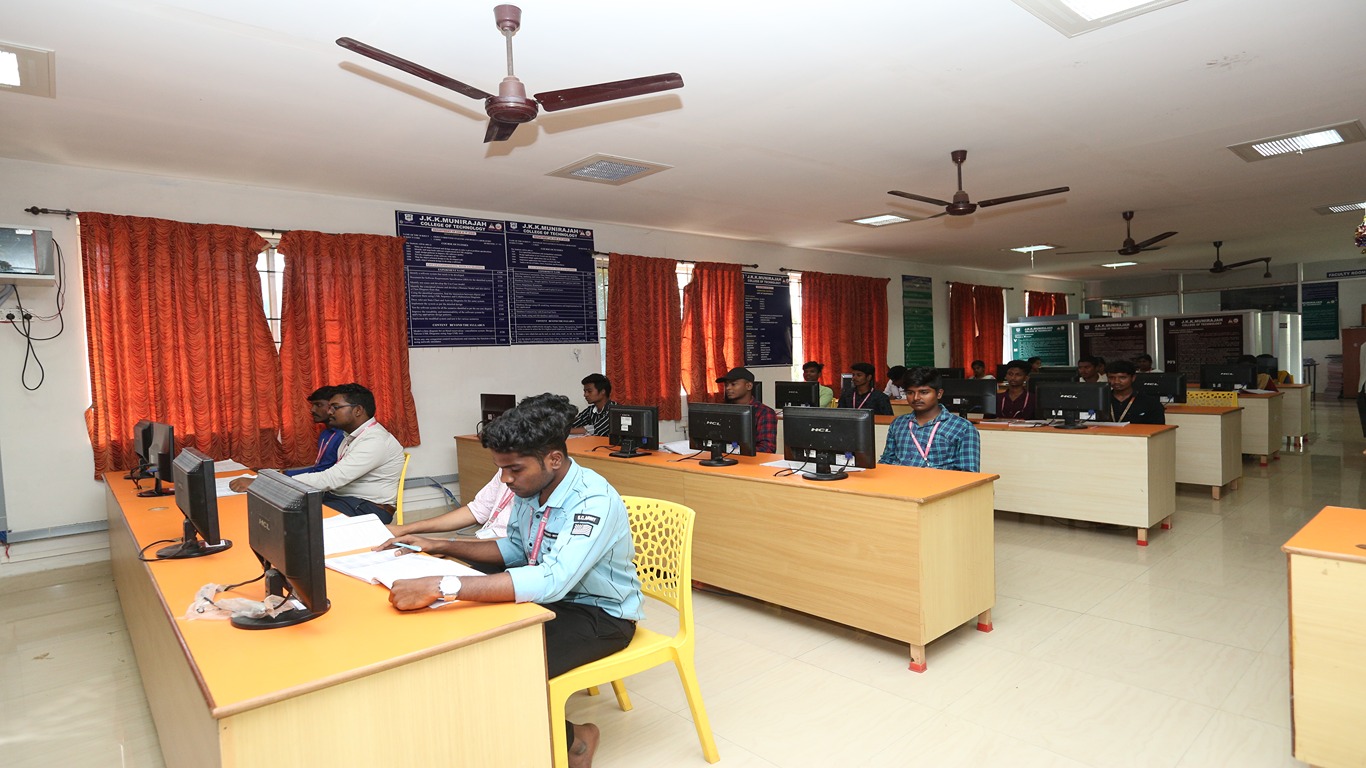Computer Science and Engineering
What is Computer Science and Engineering?
Computer Science and Engineering is the field of study, design, development, implementation, support and management of computer-based information systems, particularly software applications and computer hardware. IT provides the means to develop, process, analyze, exchange, store and secure information
Why should I study Computer Science and Engineering?
To provide a strong foundation for the students aspiring a career in the field of the software industry and IT-enabled service industry
To build and grow the commerce and business sector and generate maximum possible output.
To develop technologies such as hardware systems, OS and application software.
To identify the hardware and software components that should be used to enhance a specific business process.
To provide electronic security, storage and efficient communication.
Current Year Intake:
B.E- Computer Science and Engineering: 90 Seats
M.E- Computer Science and Engineering: 18 Seats
Vision
To produce competent professionals there by fulfilling the needs of the industrial sector and research organizations and empowering them to achieve the dreams.
Mission
Providing a strong theoretical and practical background across the computer science discipline with an emphasis on software development.
Imparting the skills necessary to continue education to grow professional.
Empowering the youth in rural communities with computer education.
Inculcating professional behavior, strong ethical values, innovative research capabilities and leadership abilities.
PROGRAMME EDUCATIONAL OBJECTIVES (PEOs):
- Develop innovative computing products by utilizing strong technical proficiency and critical thinking.
- Productively engage in research by practicing basic principles grounded in allied areas of Computer Science and Engineering.
- Adapt the emerging technologies to contribute technical innovations for progressive Development.
- Demonstrate professionalism, ethical attitude, teamwork and leadership skills with lifelong learn in the career.
PROGRAMME SPECIFIC OUTCOMES (PSOs):
- SOFTWARE LIFE CYCLE: Analyze, design and develop computing solutions by applying foundational concepts of computer science and engineering.
- APPLICATION DEVELOPMENT: Apply software engineering principles and practices for developing quality software for scientific and business applications.
PROGRAM OUTCOMES (POs):
- Engineering Knowledge: Apply the knowledge of mathematics, science, engineering fundamentals, and an engineering specialization to the solution of complex engineering problems.
- Problem Analysis: Identify, formulate, review research literature, and analyze complex engineering problems reaching substantiated conclusions using first principles of mathematics, natural sciences, and engineering sciences.
- Design / Development of Solutions: Design solutions for complex engineering problems and design system components or processes that meet the specified needs with appropriate consideration for the public health and safety, and the cultural, societal, and environmental considerations.
- Conduct Investigations of Complex Problems: Use research-based knowledge and research methods including design of experiments, analysis and interpretation of data, and synthesis of the information to provide valid conclusions.
- Modern Tool Usage: Create, select, and apply appropriate techniques, resources, and modern engineering and IT tools including prediction and modeling to complex engineering activities with an understanding of the limitations.
- The Engineer and Society: Apply reasoning informed by the contextual knowledge to assess societal, health, safety, legal and cultural issues and the consequent responsibilities relevant to the professional engineering practice.
- Environment and Sustainability: Understand the impact of the professional engineering solutions in societal and environmental contexts, and demonstrate the knowledge of, and need for sustainable development.
- Ethics: Apply ethical principles and commit to professional ethics and responsibilities and norms of the engineering practice.
- Individual and Team Work: Function effectively as an individual, and as a member or leader in diverse teams, and in multidisciplinary settings.
- Communication: Communicate effectively on complex engineering activities with the engineering community and with society at large, such as, being able to comprehend and write effective reports and design documentation, make effective presentations, and give and receive clear instructions.
- Project Management and Finance: Demonstrate knowledge and understanding of the engineering and management principles and apply these to one’s own work, as a member and leader in a team, to manage projects and in multidisciplinary environments.
- Life-Long Learning: Recognize the need for, and have the preparation and ability to engage in independent and lifelong learning in the broadest context of technological change.
aswefsfsds
| S.No. | Faculty Name | Qualification & Dept. | Designation | Experience |
|---|---|---|---|---|
| 1 | Dr.SATHYABALAJI N | M.E., Ph.D., MISTE | HEAD OF THE DEPARTMENT | 13 Years |
| 2 | Mrs.SAVITHRI M C | MCA., M.E., / CSE | ASSISTANT PROFESSOR | 11 Years |
| 3 | Mr.DHARANITHARAN S | M.E., / CSE | ASSISTANT PROFESSOR | 11 Years |
| 4 | Mr.VINOTHAN K S | M.E., / CSE | ASSISTANT PROFESSOR | 7 Years |
| 5 | Mrs.NIROSHA V | M.E., / CSE | ASSISTANT PROFESSOR | 3 Years |
| 6 | Mrs.POORNIMA DEVI L | M.E., / CSE | ASSISTANT PROFESSOR | 3 Years |
| 7 | Mr.GNANASEKAR R | M.E., / CSE | ASSISTANT PROFESSOR | 3 Years |
| 8 | Mrs.SASIREKA P | M.E., / CSE | ASSISTANT PROFESSOR | 2 Years |
| 9 | Mr.ANANTH E | M.E., / CSE | ASSISTANT PROFESSOR | 1 Year |

